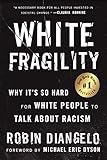All Categories


States of Denial: Knowing about Atrocities and Suffering
Share Tweet
Get it between 2024-05-07 to 2024-05-14. Additional 3 business days for provincial shipping.
*Price and Stocks may change without prior notice
*Packaging of actual item may differ from photo shown
- Electrical items MAY be 110 volts.
- 7 Day Return Policy
- All products are genuine and original
- Cash On Delivery/Cash Upon Pickup Available








States of Denial: Knowing about Atrocities and Features
-
Used Book in Good Condition
About States Of Denial: Knowing About Atrocities And
Blocking out, turning a blind eye, shutting off, not wanting to know, wearing blinkers, seeing what we want to see ... these are all expressions of 'denial'. Alcoholics who refuse to recognize their condition, people who brush aside suspicions of their partner's infidelity, the wife who doesn't notice that her husband is abusing their daughter - are supposedly 'in denial'. Governments deny their responsibility for atrocities, and plan them to achieve 'maximum deniability'. Truth Commissions try to overcome the suppression and denial of past horrors. Bystander nations deny their responsibility to intervene. Do these phenomena have anything in common? When we deny, are we aware of what we are doing or is this an unconscious defence mechanism to protect us from unwelcome truths? Can there be cultures of denial? How do organizations like Amnesty and Oxfam try to overcome the public's apparent indifference to distant suffering and cruelty? Is denial always so bad - or do we need positive illusions to retain our sanity? States of Denial is the first comprehensive study of both the personal and political ways in which uncomfortable realities are avoided and evaded. It ranges from clinical studies of depression, to media images of suffering, to explanations of the 'passive bystander' and 'compassion fatigue'. The book shows how organized atrocities - the Holocaust and other genocides, torture, and political massacres - are denied by perpetrators and by bystanders, those who stand by and do nothing.



















